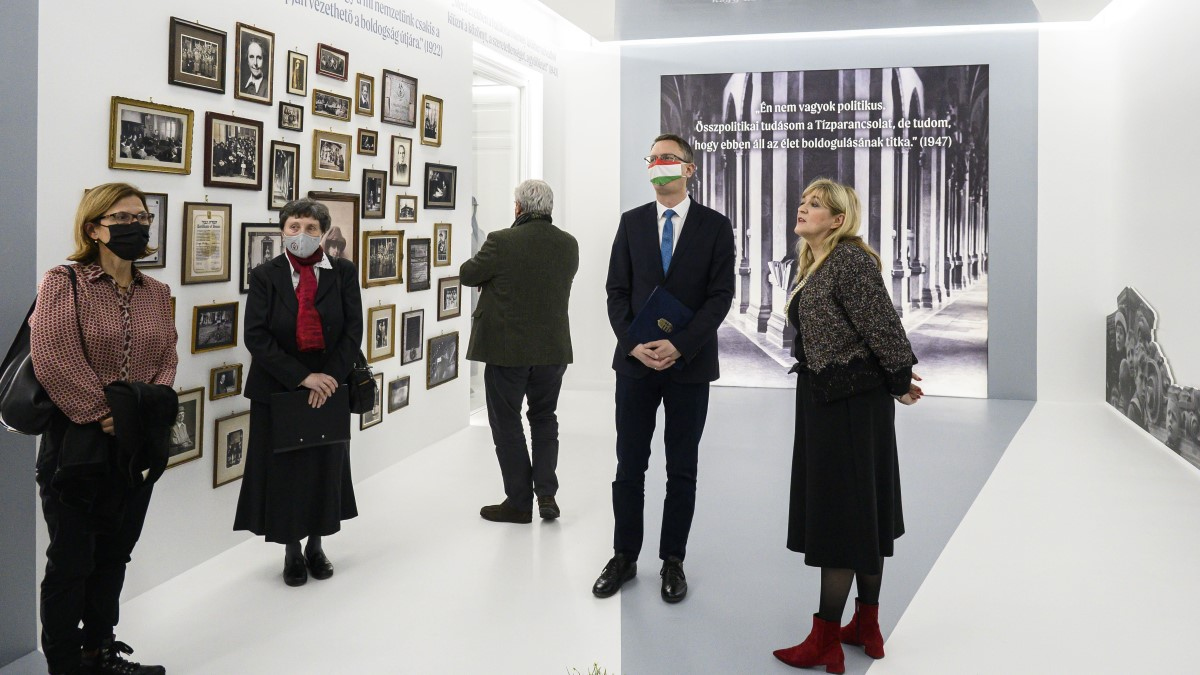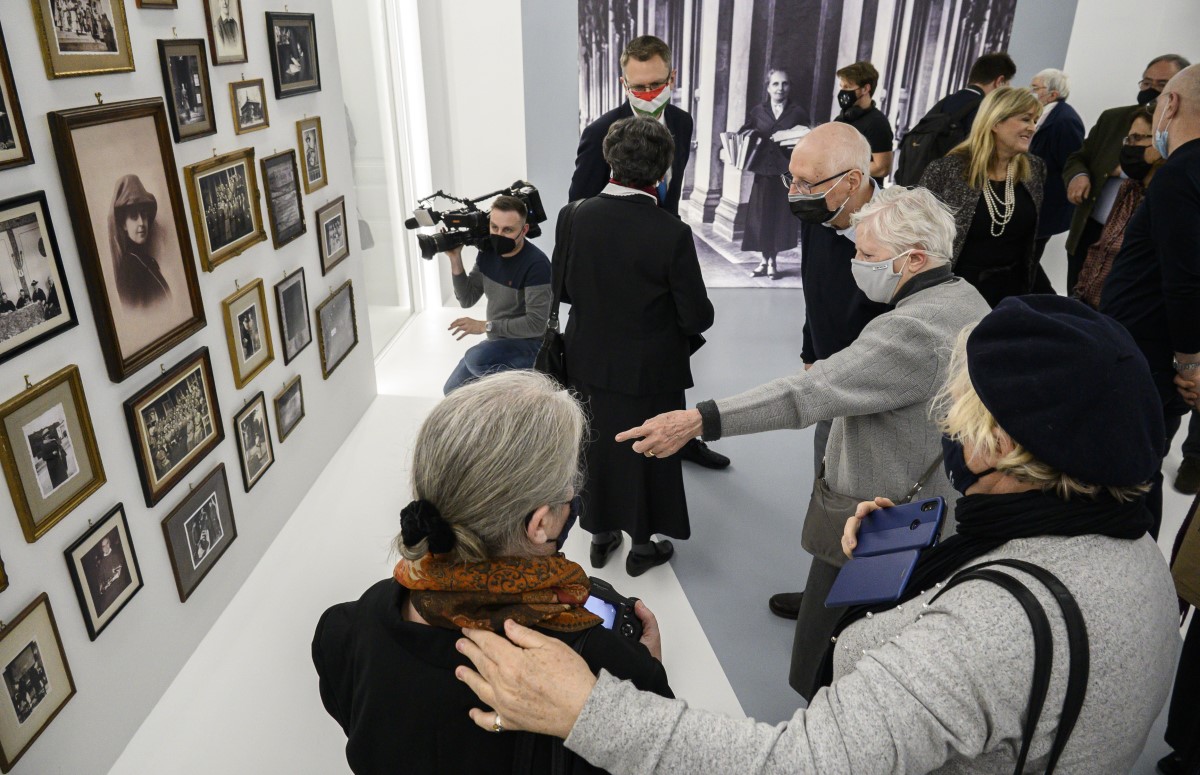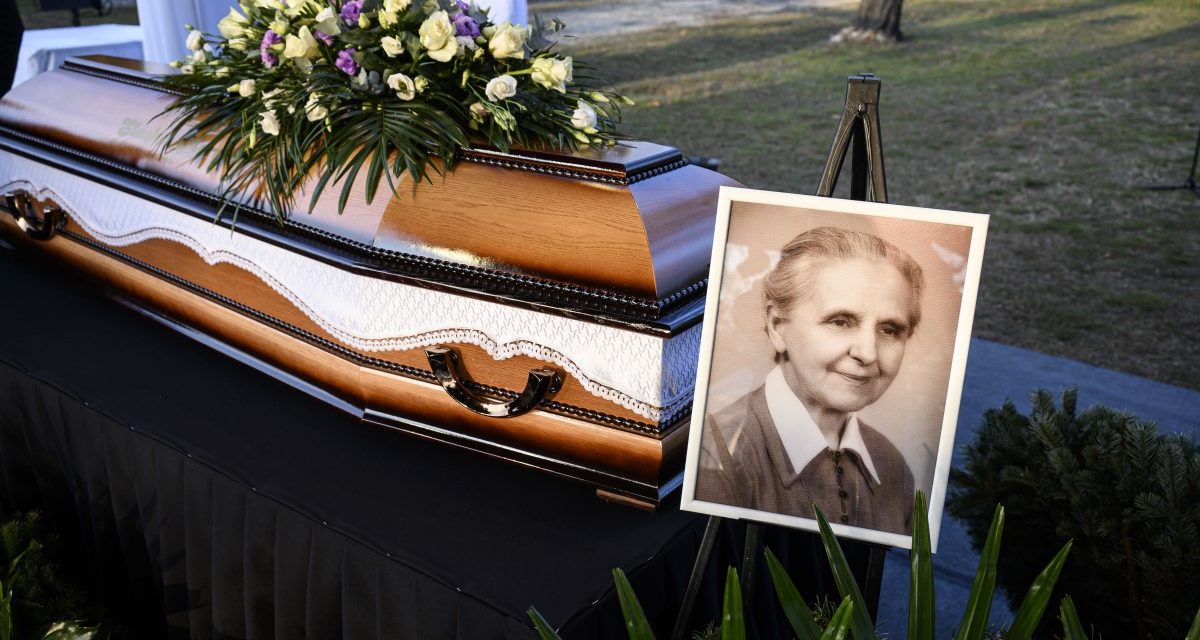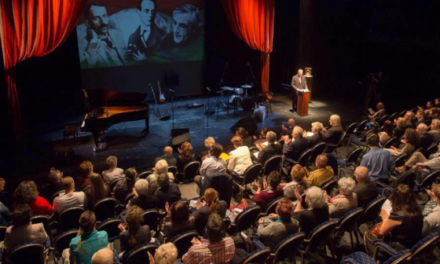Margit Slachta's political legacy is hard to pin down despite the fact that she followed the simplest program in existence, the Ten Commandments. His fate is a Christian fate: his work was accompanied by contradictions and sharp debates, followed by the denial of his work, persecution and finally - long after his death - the assumption of his political legacy, often misinterpreted.
"If there are no people who take risks, all cases will be lost" - this is the motto of the new temporary exhibition "The most modern Hungarian woman" In his speech, the Christian Democrat politician, EMMI's state secretary, regarded Margit Slachta as his spiritual predecessor, whom he characterized as a woman with an unshakable conservative worldview. Rétvári recalled Margit Slachta's idea that "without the Christian organization of society, all social and charitable activities are insufficient". In her speech, she emphasized: just as Hungary's first female member of parliament, the first female president of the republic will also have a conservative commitment.

Photo: MTI/Zsolt Szigetváry
"The most modern Hungarian woman"
Margit Slachta's biography does not outline the image of a distant, cool lady, but of a modern individual in every way. His conservatism does not show the intention to protect the usual things, but the Christian activism of the pursuit of good. Perhaps this is precisely why Slachta can become a reference for left-wing politicians in many cases: she was the first female member of parliament, who in 1915 opened a social school for secessionist students, and
she published Hungary's first "feminist" newspaper, Magyar Nőt with the subtitle "the newspaper of Christian feminism".
He won a mandate in the colors of the Christian National Unity Party (KNEP), whose intellectual father was Ottokár Prohászka, and later became the governing party of the Horthy era. Despite this, he angered many of his fellow party members with his tough and consistent loyalty to principles, which was far removed from the world of backroom deals and tactical compromises of chamber politics. During the short period of Slachta's first parliamentary term, he spoke 28 times in the Parliament, and his speeches caused quite a bit of indignation among the majority of his fellow conservative representatives. He advocated equality between men and women in all areas of life. However, this
he understood it not only for the right to vote, but also considered it important for the execution of sentences, which is why his opponents later called it the "mother of the caning law".
Against wild capitalism, against communism
He strongly protested against all measures that served the interests of the intensified and unbridled "wild capitalism" of the twenties, which later proved fatal. The social democrats were also allies in his action against price hikers. Perhaps it was precisely this, his face that was difficult to fit into the political life of the time, and was, if you like, excessively independent, the reason that
his then superior, Edit Farkas, forbade him from further political involvement.
The conflict between the two escalated to the point that Margit Slachta left the Social Mission behind her previous order and founded her own congregation.
Despite all her militancy, Margit Slachta was not a Marxist revolutionary for a minute. Since the guiding thread of his life was "obedience to the commandment of Christ's love", his political activity was primarily determined by his commitment to Christ, putting his monastic vocation above all else. As simple as this sounds, it was just as complicated to implement even a hundred years ago, in a historical period as turbulent as ours. The only organizing principle of his public activities was the Ten Commandments. As he put it:
I'm not a politician. My general political knowledge is the Ten Commandments, but I know that this is the secret to prosperity in life".
His special family background also predestined him to think in a "Catholic" i.e. universal perspective: his family living in Kassa was of Polish origin, but was Germanized for a while, and was later explained as a noble family. (His name means noble in Polish, but it was originally used according to the German spelling. Margit Slachta herself used the surname Nemes as a writer's pseudonym.) He is a true Central European hero, to whom several peoples of the Carpathian basin can relate.
"Obedience to the commandment of Christ's love"
Mária Schmidt made the "modernity of Margit Slachta, who has a conservative world view" the focus of the exhibition. With this gesture, he is trying to disprove the misconception that was propagated by many a hundred years ago, and that lives on to this day, that the idea of modernity, i.e. progress and development, is in conflict with conservatism. Margit Slachta's political creed was undoubtedly this, but fate did not leave much political room for her in East-Central Europe. Margit Slachta really didn't have much of a political legacy left.
His presence in Hungarian political history was episodic in both of his appearances, one could say a kind of symbol.
During the emergency period of the Second World War, she used her political connections to save the lives of more than a thousand people with her fellow nurses. Sára Boldog Salkaházi, also a martyr of the Holocaust, was his comrade in law, and he himself received the honorary title of the Righteous One in Israel during his lifetime.
What does Christian modernity consist of?
"Those who are not addicted to the old form, but are loyal to the old essence, feel it their duty to use the new tools and opportunities in the service of the unchanged essence, precisely motivated by the love of God and humanity. Since the present age provides people with tools that increase the efficiency of their work a hundredfold or a thousand times, even going back only a decade or two, they use new tools in the service of the one and only thing that has not changed," Magdolna Kővári, of the Social Brothers, previously recalled to Képmás magazine. The words of Margit Slachta, the current head of her company.
Idealism and naivety in the face of political realities
At the head of Margit Slachta's movement, she returned to politics after 1945 with great idealism and not a little naivety. He really believed that, through the democratic system, he could do greater, now real and not merely symbolic political work. Together with Barankovic, they believed that the Christian Social-Christian Democratic movement, which in the West was attributed to the "founding fathers of Europe", could similarly grow out of the Hungarian Catholic social movement, which was the determining factor in the political life after the war. Unfortunately, he had to be bitterly disappointed, and perhaps all along he was the most naive of the Christian politicians of the era.
He was given a symbolic role without any real political room for maneuver and possibility of action.
The wild capitalism of the 1920s, which then culminated in the Great Depression at the end of the decade, threw him out in the same way. Although he pointed out the economic, political and social processes leading to the Second World War with a sharp eye, his words fell on deaf ears, and his ideas sounded like naive idealism, which was not supported by political realities. In the period between 1945-1948, the political realities of the time gave the actors of Catholic public life three options: to join the Peace Movement, to submit to the will of the communists, as did the former secretary of small farmers, Father István Balogh, or to take the risk of martyrdom, as Cardinal Mindszenty and the many priests, monks and nuns of the persecuted church.
The third option - which was given to only a few - was to leave the country and continue the Christian profession and the patronage of the poor while living in emigration.
The exhibition primarily presents the strong, exemplary Slachta Margit. How he recognized the most pressing questions of his time and pointed out the unsolved problems of society. We can see that he was ahead of his time in the fields of women's and family protection and social policy. In the 21st century, his consistency, humane demeanor and bravery are definitely worth a message, even if after 1945 he really only realized what Hungary's future was at the last moment. His life was spared thanks to the intervention of Father Balogh, a prominent member of the Peace Movement, but he was forced to emigrate permanently in 1949.

Photo: MTI/Zsolt Szigetváry
"Please, Lord God the Holy Spirit, inspire a representative who has greater abilities than me"
After 1947, Margit Slachta tried to mediate for a while between the characters of the Catholic public life, which was falling apart at the time, and turned against each other. He tried to intercede for Barankovics with Cardinal Mindszenty precisely because they had previously stood together for the cause of saving the Jews, knowing that there were huge contradictions between Mindszenty's conservative views and Barankovics' ideas. Many people saw Slachta as a puppet of István Balogh, who aligned himself with the left, against Mindszenty's hard-line anti-communist stance, as he tried to keep in touch with the Catholic public figures in his party created by Rákosi to decriminalize small farmers.
Those in the know attributed this assumed "bridge role" to the nun's naivety.
This clarity is also shown in his last parliamentary speech, which he gave on June 16, 1948, against the nationalization of Catholic schools, and where he emphasized the rights of parents in the communist parliament and tried to convince the representatives to change their ideas with signatures.
The communists interrupted the speech with constant shouting, to which the representative modestly indicated: "As a representative, I have the right to be heard." At this, a voice from the Hungarian Workers' Party shouted: "But not for long!" The parliamentary diary does not even include the entire speech, because at the suggestion of the Speaker, the content "seriously violating national sovereignty" was deleted. This part contained a prayer addressed to the Holy Spirit, in which Margit Slachta prayed for the international community to recognize the injustices and injustices that are happening in Hungary.
He was deeply affected by the fact that those who had just robbed the youth of God began to sing "God bless the Hungarians",
- so I should have knelt down and prayed the psalm "...how could we sing the Lord's song in a foreign land" [136/137. psalm]," Margit Slachta recalled the event.
"He is the only man in the National Assembly"
In this statement attributed to György Parragi, a member of Father Balogh's fellow traveler party and the later editor-in-chief of Magyar Nemzet, it was shown that following the Ten Commandments, even in the absence of real political knowledge, ability to compromise, and tactical sense, is enough to earn the respect of one's opponents. Following the Ten Commandments is enough for someone to actively oppose the persecution of Jews, to raise his voice against the communist persecution of the Church, and to be the voice of morality in an immoral world, where there was less and less opportunity to make good political decisions in the midst of wartime constraints and dead ends. This consistent Christian position did not tolerate the lies of either the Nazi or the Bolshevik dictatorship.
Margit Slachta died in 1974, in exile in Buffalo, USA.
In practice, his order was the first religious organization of social workers in America. During his lifetime, his continuously growing monastic order is present in nine countries on three continents. In addition to the United States, they are also active in countries such as the Philippines, Taiwan, or Cuba. After the fall of communism, it was 31 years before he was finally able to "return home". His ashes were laid to rest on December 7, 2021, in the Fiumei út cemetery in Budapest.
Photos: MTI/Zsolt Szigetváry













